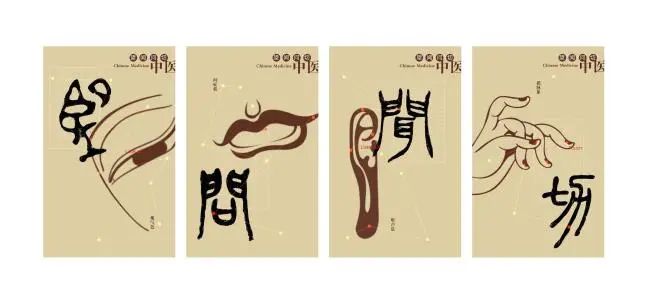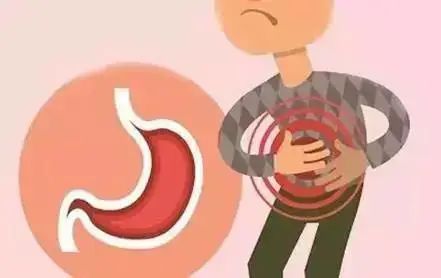TCM Diagnosis – Auscultation
Auscultation is a term in Traditional Chinese Medicine (TCM) diagnosis, one of the four diagnostic methods: observation, auscultation, inquiry, and palpation. TCM utilizes hearing and smelling to infer disease patterns by examining the sounds produced by the patient and the various odors emitted from bodily excretions.

Since the various sounds and odors emitted from the human body are produced during the physiological and pathological activities of the organs, changes in sounds and odors can reflect the physiological and pathological changes of the organs. Clinically, this can help infer the state of Zhengqi (正气, vital energy) and determine the type of disease.
Auscultation includes both hearing sounds and smelling odors:
Hearing sounds refers to examining the patient’s voice, speech, breathing, coughing, vomiting, belching, sighing, sneezing, bowel sounds, and other various noises. The main focus is on the volume, pitch, and clarity of the sounds to distinguish between cold, heat, deficiency, and excess.
Smelling odors can be divided into two aspects: the body and the environment. The odors from the body are primarily due to pathogenic factors causing the body’s organs, qi and blood, and body fluids to produce foul qi, which can be emitted from bodily orifices and excretions. Based on this, one can discern the cold, heat, deficiency, and excess of the organs and the location of pathogenic qi.

In clinical practice, auscultation, along with observation, inquiry, and palpation, must be combined to comprehensively and systematically understand the patient’s condition and make accurate judgments about the disease.

Auscultation
【Objectives】
1. Understand the changes in coughing, wheezing, belching, sneezing, and delirium, and their general clinical significance.
2. Familiarize with the general clinical significance of changes in the pitch, strength, and clarity of sounds related to breathing, speech, vomiting, as well as the odors from the mouth, sweat, phlegm, urine, and the environment.
【Meaning】Auscultation is a method of diagnosing diseases through hearing sounds and smelling odors.
【Content】Hearing sounds, smelling odors.
Section One: Hearing Sounds
【Meaning】Hearing sounds refers to discerning the changes in the patient’s speech and breath, including pitch, strength, clarity, and urgency, as well as abnormal sounds produced by coughing, vomiting, etc., to determine the nature of the disease’s cold, heat, deficiency, and excess.
【Principle】“Qi moves, thus there is sound”
【Significance】Changes in sounds can diagnose lesions in the vocal organs and infer changes in the organs and overall condition.
Why can hearing sounds be used to diagnose diseases?
The principle can be summarized in five words: Qi moves, thus there is sound.Each of the five organs has qi, and the movement of qi in the organs maintains physiological functions and smooth qi flow. If the qi of the organs undergoes pathological changes, corresponding sounds will be produced.
For example, the lung governs qi and controls breathing, while the kidney governs the intake of qi. If there are pathological changes in the lungs or kidneys, it may manifest as coughing or wheezing or abnormal sounds.

The heart governs blood and houses the spirit; speech is the voice of the heart. If the heart undergoes pathological changes, it may manifest as abnormal speech or abnormal heart sounds due to the heart not housing the spirit.

The spleen and stomach are the foundation of postnatal life and the pivot of qi movement. If the spleen and stomach undergo pathological changes, such as the stomach losing its harmony and descending, leading to rebellious stomach qi, it may manifest as abnormal gastrointestinal sounds, such as vomiting or borborygmi.

The liver governs the smooth flow of qi. If the liver fails to regulate qi, it may manifest as abnormal sounds such as sighing.
Thus, changes in sounds can diagnose lesions in the vocal organs and infer changes in the organs and overall condition.
For instance, hearing coughing can indicate a lung or kidney issue; hearing sounds of vomiting, belching, or burping can indicate a spleen and stomach issue; hearing someone sighing can indicate a liver issue; and hearing abnormal speech, such as delirium or nonsensical talk, can indicate a heart and spirit issue.

【Content】Sounds (voice, hoarseness and loss of voice, snoring, moaning, exclamations, sneezing, yawning, sighing), speech, breathing, coughing, heart sounds, abnormal gastrointestinal sounds (vomiting, belching, burping, bowel sounds)
Next, we will learn about the characteristics and significance of normal sounds:
【Normal Sounds】Vital energy is abundant, and qi flows smoothly.
Voice: Natural, harmonious tone, soft and round.
Speech: Fluent, responsive, with words matching intent.
This normal sound usually indicates abundant qi and blood, with smooth qi flow, but due to differences in age, gender, and individual constitution, normal sounds can vary.

【Factors Affecting Normal Sounds】Gender, age, constitution, and emotional changes.
Generally speaking,
men have deep and turbid voices; women have high and clear voices.
Children have sharp and crisp voices; the elderly have deep and low voices.

Additionally, changes in voice are related to emotional changes.
When happy, the voice is often joyful; when angry, it is often urgent; when sad, it is often tragic and intermittent.
When joyful, the voice is often smooth and gentle; when respectful, it is often upright and serious; when loving, it is often tender.

These sounds, which arise from momentary emotional responses, are all within the normal range and are not related to disease.
Abnormal sounds will be studied from the following five aspects, including abnormal sounds, speech, breathing, coughing, and abnormal gastrointestinal sounds, etc. The specific content will be learned starting tomorrow.


Long press to recognize the QR code and follow Xile Liangyao
Let’s discover the wonders of TCM together and bring TCM closer to life.

